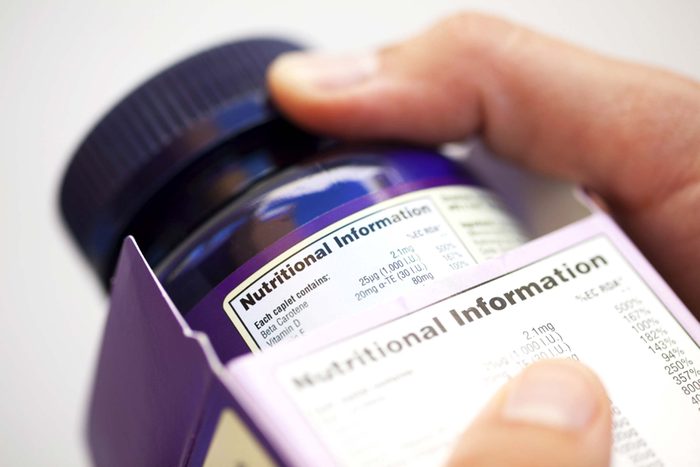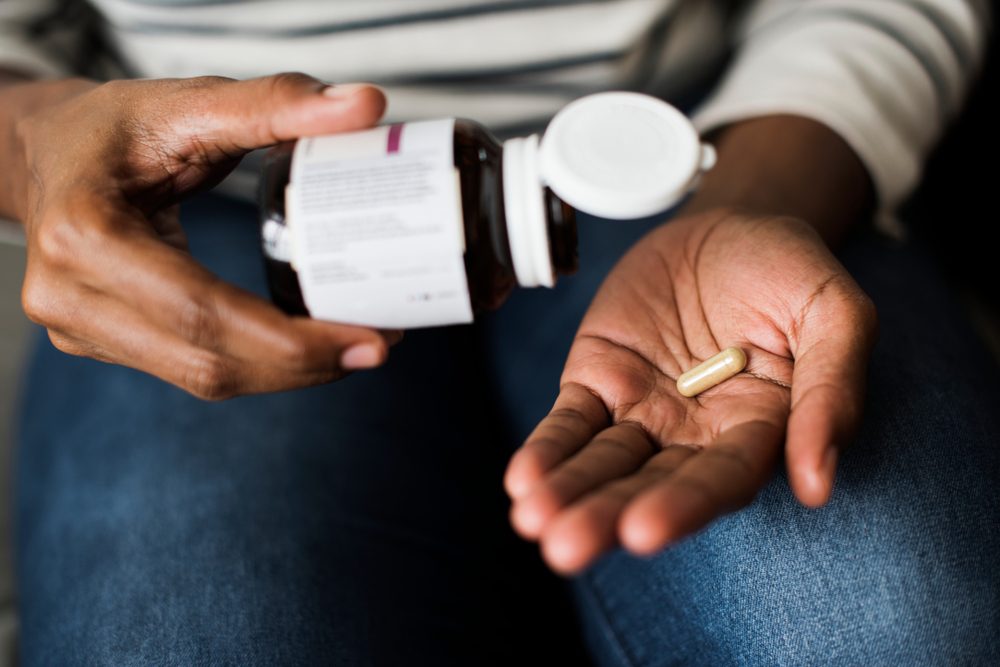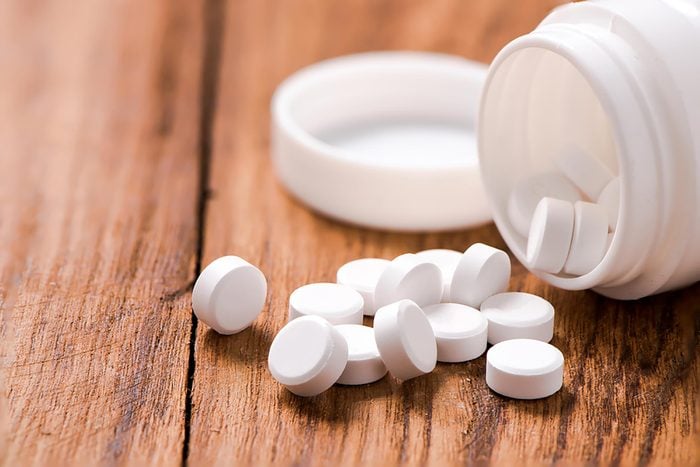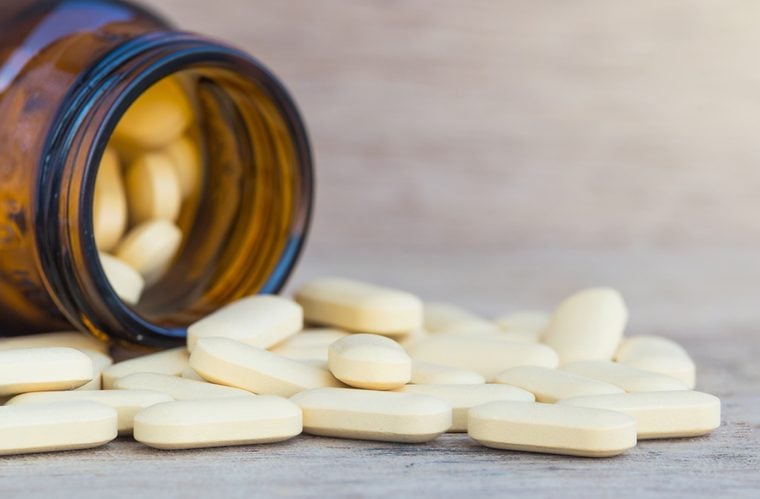
Keeping vacations healthy
Vacations are supposed to be good for you. But with so many details to plan, rooms to book, and planes to catch, travel can run you down and stress you out before you even get to your destination. Then once you arrive, there’s jet lag, germ-ridden hotel rooms, and the temptation to overdo the eating and drinking. First off, you can manage that jet lag with 13 tips for easing into your new time zone. Then follow up with the right vitamins and supplements, and you can ease dietary distress, boost immunity, and more. Doctors have known this for years, which is why we asked them what’s at the top of their packing lists. Consider the following nutrients your personal travel insurance, so you can return relaxed, renewed, and really, really healthy.
Proceed with care
Experts agree that it’s important to be cautious since most supplements, including vitamins, are not regulated by the FDA. Taking too much of the wrong thing can be toxic and lead to liver or kidney damage. Also, a recent review published in the Journal of the American College of Cardiology found that some of the most popular pills, including multivitamins, vitamins C and D, and calcium—played no role in preventing heart disease, stroke, or premature death. Learn more about which vitamins you actually do need here.
The right way to take supplements
When you use vitamins to complement a reasonably healthy diet, they can give your body a much-needed boost—especially under stressful conditions such as traveling. “The classic rules apply,” says Frank Lipman, MD, founder and director of the Eleven Eleven Wellness Center in New York City and the Be Well website. “Eat fresh, whole foods; get regular exercise; get enough rest; steer clear of too much sugar.” If you’re doing all that, supplements can “add a bit more firepower to your health arsenal” when you travel, he says. Here are 15 more secrets to staying healthy on vacation.
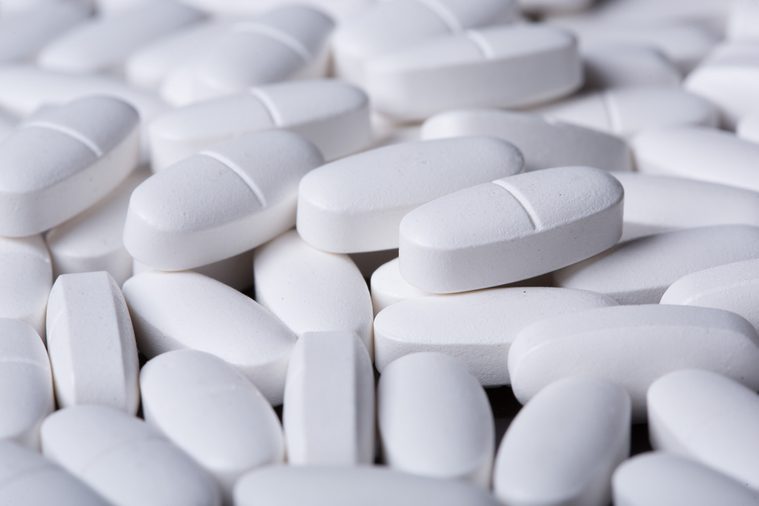
Magnesium
Dr. Lipman refers to magnesium as “the everything mineral” because it plays a crucial role in so many bodily processes, especially nerve and muscle function. According to data collected by the National Institutes of Health (NIH), most Americans don’t get the recommended daily amounts through diet alone; older adults, diabetics, and those with Crohn’s disease are especially at risk of deficiencies.
Several small studies have found that magnesium may help improve sleep by raising levels of a snooze-inducing neurotransmitter in the brain. That same chemical encourages relaxation, which is why magnesium may help soothe stress and muscle tension—both of which go hand-in-hand with air travel. It also helps with another travel-instigated complaint: constipation. McDaniel likes the Natural Vitality Natural Calm Magnesium supplement because it comes in handy, travel size packets that you mix with water. “It is a great way to keep things moving when the stress of travel wreaks havoc on your GI system,” she says. “I take it at night to help with travel-related sleep issues as well.” And these are just some of the 14 magnesium benefits that could save your life.

Melatonin
Speaking of sleep, this hormone helps keep your body clock on a regular schedule and can be helpful in transition your internal circadian clock to local time faster. The body produces melatonin naturally during sleep, and a medical review of the research on melatonin supplements suggests that taking between 0.5 to 5 mg of one—such as Natrol Advanced Melatonin—near bedtime once you hit your new destination can help you nod off faster and adjust more easily to the new time zone.
Probiotics
Traveler’s diarrhea is just seems to come with traveling to new places—and trying new cuisines. According to the CDC, this complaint strikes up to 70 percent of trip-takers. But that’s not the only way travel affects your gut: A study in Cell found that jet lag can actually disrupt the healthy bacteria in your GI tract, known as the microbiome, contributing to constipation, troubles with blood sugar, and even weight gain.
Popping a probiotic can be like a form of travel insurance, because they help repopulate your GI tract with beneficial bacteria, according to Dr. Lipman. This is especially helpful if you’re off your typical eating schedule or enjoying a menu that’s much different than what you usually have. Dr. Lipman recommends his own brand, Be Well’s Mycoflora supplement. It contains the strain Saccharomyces boulardii, which has been shown to counteract diarrhea and yeast. Two pills a day can help keep your gut happy.
Some probiotics have to be kept refrigerated, and that type won’t hold up well during travel, warns Jennifer McDaniel, RD, owner of McDaniel Nutrition Therapy and co-author Prevention Mediterranean Table Cookbook. She prefers the Ortho Biotic brand, which contains Lactobacillus and Bifidobacterium, two strains shown to be useful for stomach issues. So, don’t forget to pack those probiotics, and anything else you see on this handy travel first-aid checklist to make your trip a healthy and happy one.
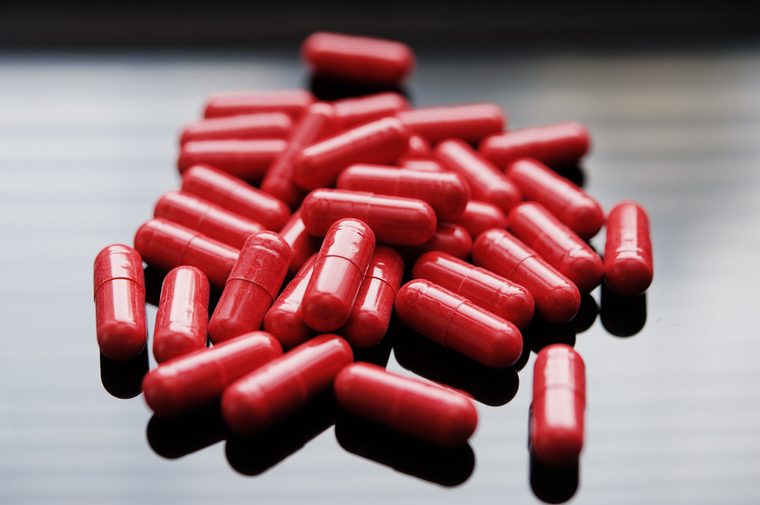
Lycopene
This is the plant pigment that famously gives tomatoes their red hue; it’s also found in watermelon, papaya, and red grapefruit. Lycopene is in a class of potent antioxidants known carotenoids, which research shows can help control inflammation and nourish the skin.
“Tomato phytonutrients may help balance the levels of different skin health biomarkers that are induced as a result of controlled exposure to UV,” says Karin Hermoni, PhD, skin-care expert and head of science and nutrition at Lycored. In other words, lycopene plays a role in helping protect skin from sun damage, a plus if you’re headed to a sunny vacation spot.
While “edible sunscreen” is not a reality yet—and lycopene supplements won’t save you from reapplying sunblock regularly—the compound can be used in conjunction with sunscreen as extra protection, a good idea for the people who are fair skinned. It’s also been linked to overall skin health as well as good circulation and strong bones. To achieve the full spectrum of benefits from lycopene, Hermoni says, aim for 10 and 15 milligrams a day. Choose whole foods as a source, and supplement with natural tomato extract to fill in any gaps.
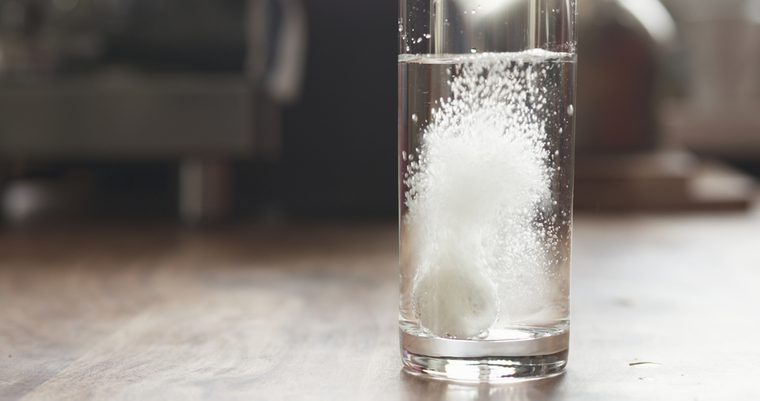
Immunity boosters
It’s not just that the stress of traveling can run down your immunity and leave you more susceptible to germs—you’re also exposed to a greater variety as you wander to new places. A study published in the Journal of the American Medical Association reported that roughly one-fifth of all plane passengers came down with respiratory infections within five to seven days of flying. Try warding off infections by boosting your immunity with vitamin C and zinc. Yes, it really works!
Ohio State University researchers found that zinc plays a key role in immune response to infection, which could be why popping a capsule can help keep cold symptoms from worsening. Be Well offers Daily Dose packets that contain a combination of nutrients (including C and zinc) to keep your germ defenses strong. Here are 7 ways germ experts boost their immunity.
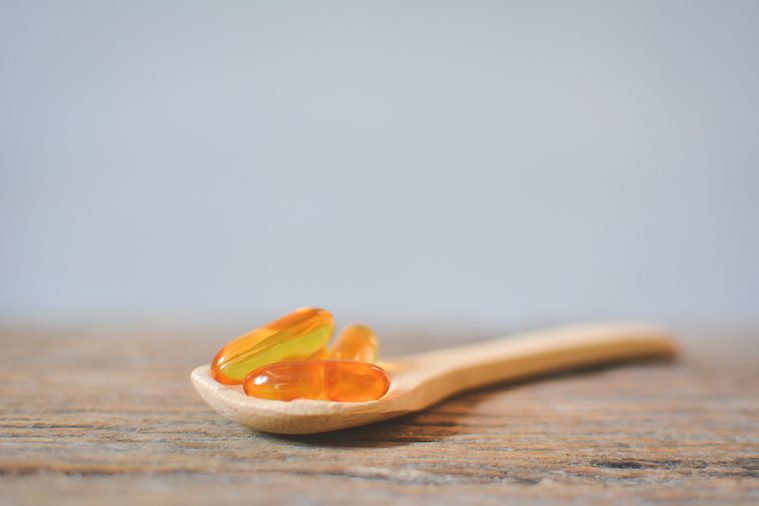
Omega 3s
Most of us don’t get enough of these healthy fats found in fish like salmon, mackerel, herring, and sardines. Research indicates they can play a key role in brain and heart health, and they tamp down the kind of inflammation linked to serious health conditions like diabetes. But most importantly for travelers, the healthy oils can help boost your immunity and ward off the nasty bugs you’ll run into while on the road.
McDaniels likes to pack Nordic Naturals, a reputable fish oil supplement that verifies the potency and purity of its product through testing by independent labs. She even brings some for her kids: “They have tried multiple kinds of fish oil supplements, but the tangerine flavored chews are their favorite,” she says. These 7 unexpected ways fish oil can boost your health will provide just the motivation you need to remember to pack the fish oils this vacation.
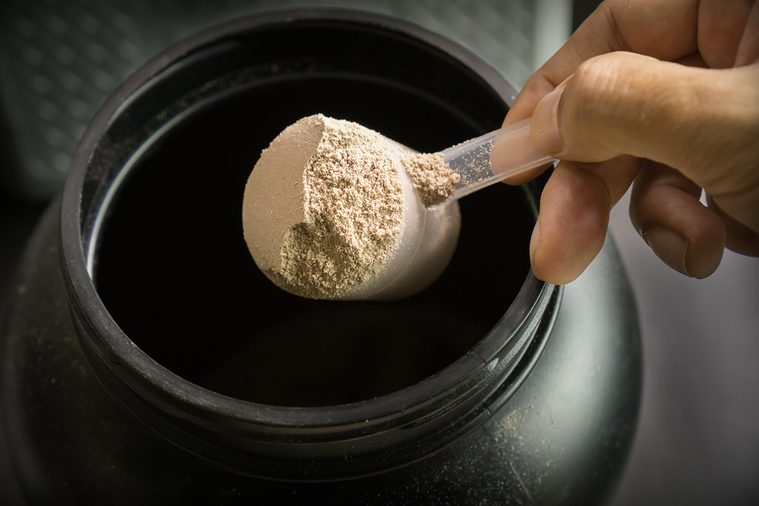
Protein powder
When you’re on the go, it’s easy to skip meals—or at least healthy, well-balanced ones. For that reason, Dr. Lipman keeps a stash of protein powder with him at all times as a snack or meal replacement. It’s a convenient and quick way to meet your nutritional needs and satisfy your hunger until you’re in a position to grab good food.
His choice is his own mix, Be Well’s Sustain Plant Protein all-in-one nutritional shake. Mix the vanilla-flavored powder with water, coconut water, or nondairy milk for a nutrient boost to tide you over until you reach your destination. While experts agree it’s best to try to meet the majority of your nutritional needs through whole foods, there are times when it’s simply easier to pop a supplement to get you through the day. Travel can be one of those times.
“If you choose to supplement, look for a high-quality product that has been third-party tested,” says Kelly Pritchett, PhD, RD, a spokesperson for the Academy of Nutrition and Dietetics. A registered dietitian or your healthcare provider can help you determine a product’s effectiveness and quality. Here are 7 more tips on finding the best protein powder.
